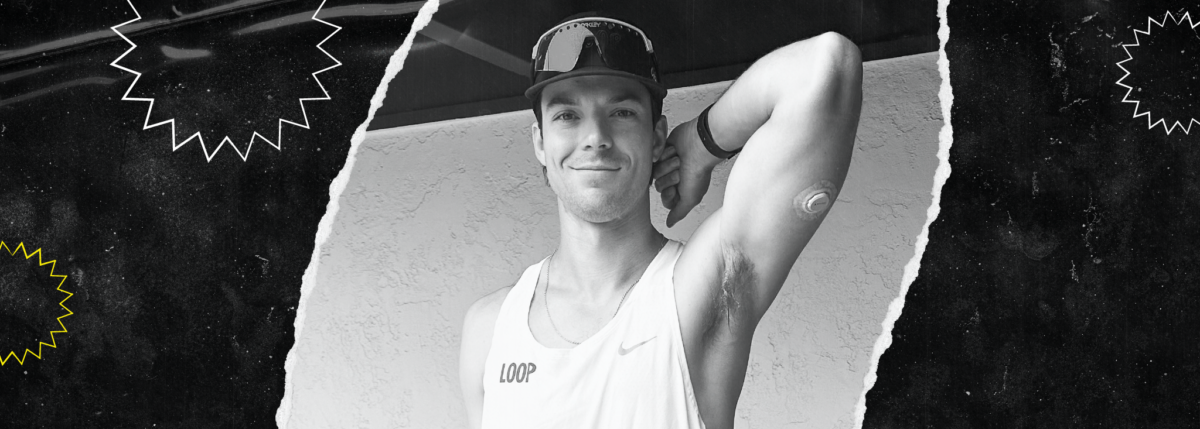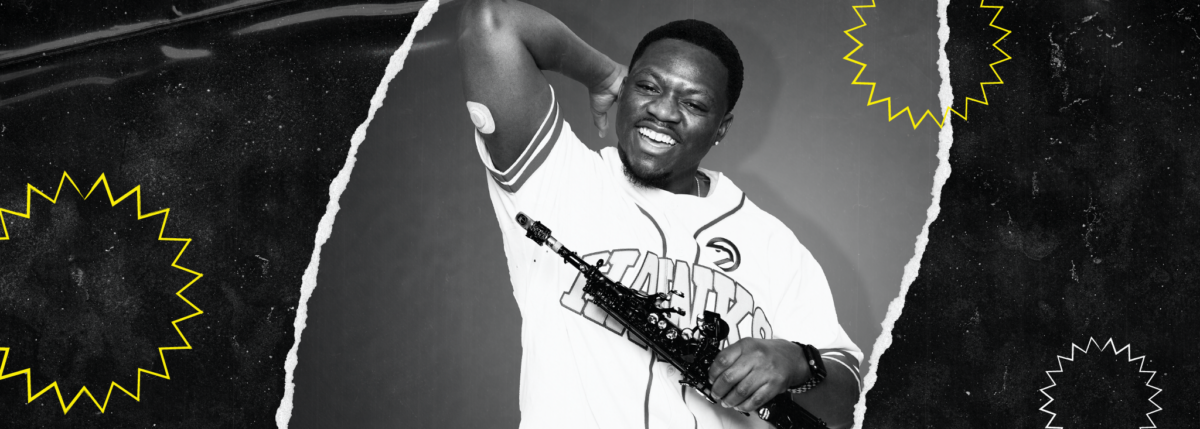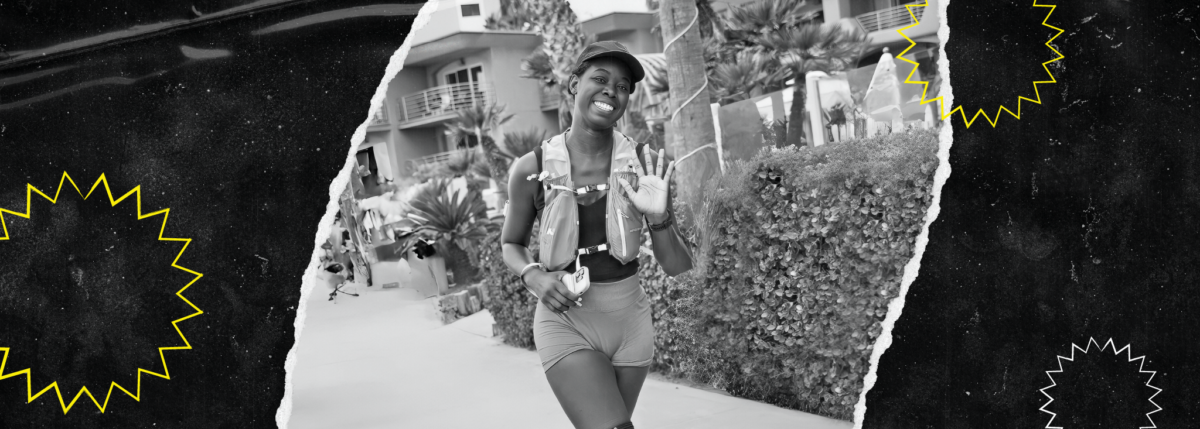Life with Diabetes Complications: I Wish I’d Known This Would Happen
Written by: Liz Cambron-Kopco
7 minute read
October 12, 2022
For years, Fabian didn’t have the resources or tools to manage his type 2 diabetes. Now, he’s navigating life with complications.
The unfortunate truth: having diabetes can significantly increase your risk of developing other health conditions. While some potential diabetes complications may not be preventable, most complications are largely caused by chronically high blood sugar levels that damage nerves and blood vessels throughout your body. Diabetes complications can impact nearly any part of your body, including your eyes, kidneys, heart, legs and toes.
Beyond Type 2 sat down with Fabian Cambron, who has lived with type 2 diabetes for over 20 years and is now navigating life with complications.
This interview has been edited for length and clarity.
BT2: Thanks for joining us, Fabian! To start off, can you tell us when you were diagnosed with type 2 diabetes and what symptoms did you have?
Fabian: Thanks for having me. I was diagnosed when I was in my late teens, early twenties. I kept getting infections and I ended up being hospitalized. They noticed my blood sugars were really high and wouldn’t come down. That’s when they initially diagnosed me with type 2 diabetes. I am 46 now, so it’s been quite a while.
What was your diabetes management like right after you were diagnosed?
It was pretty much nonexistent. Unfortunately, where I grew up, in the south side of Chicago, we didn’t have many resources to educate people about type 2 diabetes and how to manage it properly. Even if there were some, they were very limited in resources—it was hard to come by.
Honestly, it wasn’t something culturally that people talked about a lot. There’s that stigma to get over initially about your healthcare, taking care of yourself and what to do with type 2 diabetes.
So for a long time, it just went unmanaged, unfortunately. That’s why I’m in the position I am today.
That kind of relates to my next question. What barriers did you face with getting the care that you needed? It sounds like there was a lack of resources and education.
Yeah, it was mostly a lack of resources financially, and from a social perspective, there weren’t people out there to educate the community.
From a financial perspective, I was a single parent and had to decide whether I was going to purchase expensive medications to help manage my diabetes or keep a roof over my head and my son. At that point, I made the decision that it was more important to keep a roof over our heads and ignore my medical needs.
There was not enough training in the community to tell me, “Okay, if you don’t manage this now, this is what could potentially happen in the future.”
It sounds like you weren’t really aware of diabetes complications. It sounds like your healthcare team never provided education on complications?
Right. If somebody would’ve told me, “If you don’t manage this, you’re going to lose your toes, your kidneys are going to fail and you’re going to have to go through all of this on a daily basis, this is how it’s going to impact your life,” maybe things would’ve been different. Sure doctors would tell you to take care of it, but they didn’t really specify the impact of not taking care of it, the ramifications of not being on top of it.
Unfortunately, even if they do tell you, it’s kind of hard to grasp, like, “Oh that’s never going to happen to me. I’ll be okay and try to manage it by watching what I eat.” But a lot of times, that’s just not enough. You do need medications and preventative care to be able to manage it properly.
What signs did you experience that you were developing complications?
The biggest complication is eye issues where eye pressure tends to increase, like glaucoma. That’s a sign of diabetes impacting your eyes. Now I do take eye pressure drops every night to try to control that.
For the longest time, my urine output had a lot of protein in it, so when I peed I would see bubbles. That was first indication that my kidneys were struggling. We started monitoring them, and they just progressively got worse and worse. I am now in end-stage renal failure and am on the kidney transplant list, waiting for a kidney transplant.
Now I have to do in-home peritoneal dialysis every night. That’s impacted not only my life, but but also my family’s life. We can’t go out late. We can’t have a late dinner. Because of my dialysis, I have to be home by 7:00 p.m. to get dialysis started by 8:00 p.m.
I’ve been very fortunate that I work from home, so that’s been one good thing where I’m able to manage this properly. I don’t know how people that are not able to work from home would be able to manage this and still work. It would be even more difficult for them.
The other complication that I most recently experienced was having my toes amputated due to neuropathy. It started off by me mowing the lawn. I got a blister in my pinky toe, and unfortunately I was not aware that I had poor blood circulation due to the diabetes and complications. The toe started dying and it just progressed—never healing properly. I ended up getting all of my toes amputated on my left foot.
I’m dealing with that right now, recovering from surgery. But hopefully I’ll get back on my feet and be able to do all the stuff that I love to do outside and be able to keep going with my life.
It’s your extremities. Diabetes starts to impact your extremities.
How has your overall life changed since you’ve developed these complications?
I haven’t been able to be as active as before. I used to mow the lawn, work on my cars—I have cars that I loved. I can’t do that right now because physically, I’m not able to.
We’re not able to go out as a family and stay out late for parties. I have to be home by a certain time. I can’t go to my son’s football practice all the time. It makes it more difficult to participate in family activities at times.
Looking back, is there anything you wish you or your providers would’ve done differently?
I wish they would’ve given me more tools—financial resources to be able to take care of it. And better education to help me understand what would happen in the future if I didn’t care of it sooner. I wish I’d known about special programs that would’ve helped me with medications and diabetes education.
It’s not if it’s going to happen, it’s when it’s going to happen, because eventually ignoring your diabetes will impact you down the road.
What kinds of tools or resources do you think would’ve been helpful for someone who was diagnosed at such a young age?
I hated the sticking my fingers. If we would’ve had the continuous glucose monitors (CGM) way back in the day, I probably would’ve managed it a little better—if I had the money to spend on it because they’re not cheap. Even with insurance covering some of the costs, they’re still not cheap.
I wish the government and insurance companies would realize that if they would cover these tools for people to be able to monitor their glucose levels, then they might actually do it—they would be more proactive in their healthcare.
It’s insane that insulin costs so much for so many people or is hard to get when it’s something that they depend on to live on. If we had special programs where we could get subsidies or people could apply to get insulin for free because it’s something that you need just to live, we’d be cutting down the costs of healthcare in the long run because then we wouldn’t have all these complications down the road.
What advice would you give to someone who has just been diagnosed with diabetes complications?
Take it one step at a time. It’s not the end of the world. I know a lot of people ask if I’m okay with the foot and the complications—and I am okay.
It’s just another hurdle I have to deal with. You just have to keep going forward. Hopefully I’ll get a kidney transplant one day and be off of dialysis. We won’t be tied down to home dialysis and be able to stay out later, do more normal activities and live a more normal life. I just have to be cognizant of what I eat and take care of my health more closely.
Pay attention to your body. If you see that something’s happening, go to your doctor. Don’t ignore it. You have to be an advocate for yourself.
Editor’s note: People who take insulin require consistently affordable and predictable sources of insulin at all times. If you or a loved one are struggling to afford or access insulin, visit GetInsulin.org.
Educational content related to diabetes complications is made possible with support from Lilly Diabetes, an active partner of Beyond Type 2 at the time of publication. Editorial control rests solely on Beyond Type 2.

Author
Liz Cambron-Kopco
Liz has been living with type 2 diabetes since 2014, but grew up surrounded by it as a first-generation Mexican-American. With a bug for research, Liz pursued a PhD in molecular biology and spent her early career studying insulin signaling in invertebrates to understand how insects’ tiny little bodies work. Along with advocating for women and girls in STEM, Liz shares her personal journey with diabetes on her social media platforms to help teach people to become their own advocates. Her passion for advocacy led her to join the Beyond Type 1 team. When she’s not advocating, Liz enjoys hiking... Read more
Related Resources

Jordan Sooter’s journey to running marathons began in college as a way to stay fit....
Read more

Antoine Gibson is no stranger to overcoming challenges. As a saxophonist and marathon runner living...
Read more

Danica Collins not only prepared for one of the most challenging physical events of her...
Read more

